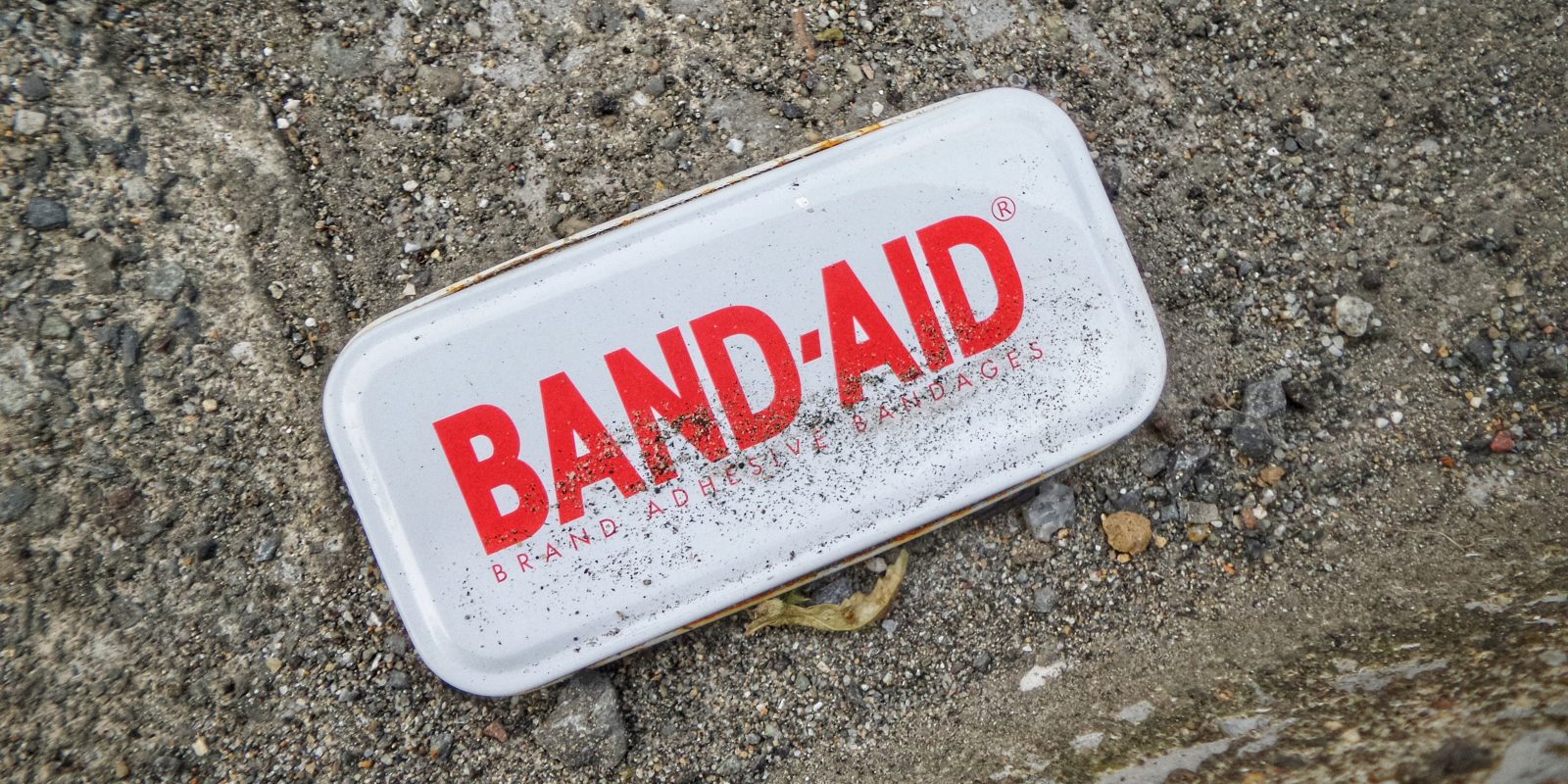Traveling or expecting to be far from City Dog Vet or your local Animal Emergency Clinic?
Almost always, it is better to contact the veterinarian and head on in; time wasted may be vital.
If you are far away, use the kit to control bleeding, protect wounds, and other first-line responses.
Here’s what we recommend:
First things first… whenever possible, call for veterinary advice!
- Digital thermometer
- Flashlight, magnifier: to help find and examine injuries
- Bandage scissors, roll gauze, non adherent bandage
- Triple antibiotic wound salve
- Tweezers: for splinters, ticks
- Muzzle: painful dogs will bite out of instinct, even the hand that feeds them
- Towel: can be used to wrap patient or apply pressure to a wound
- Benadryl: in cases of insect or spider allergies, hives, etc, may safely give 1-2 mg per pound (2-4 mg/kg) every 8-12 hours. Best to consult first if possible.
- Liquid antacid: helpful with obvious acid reflux
- Liquid activated charcoal: may be recommended for certain ingestions (Always speak to a vet first for guidance)
- Hydrogen peroxide. Useful for cleaning blood out of fur, as a safe antiseptic for superficial wounds and other uses. Always consult a vet first!
- Ice pack. Pain relief for insect stings and sports injuries, can slow bleeding from damaged nails.
- Quick Stop: for bleeding nails
- Any rescue meds prescribed by your vet, including steroids for Addisons, sedatives
- Eye wash
To control bleeding, put a clean cloth over bleeding wound and apply firm pressure for no less than 3 minutes. If it is pulsing or spurting, apply pressure and head to vet. Smaller vessel bleeding may be controlled with pressure, then bandage. Do not apply tourniquets unless you need to stop a major arterial bleed. The limb may be lost if a tourniquet is needed and is on too long.
Our City Dog Vet staff can help avoid stressful, costly ER appointments with our urgent care hours
Call us with questions or concerns for an easy appointment to get the best options for your dog’s sudden problems.

